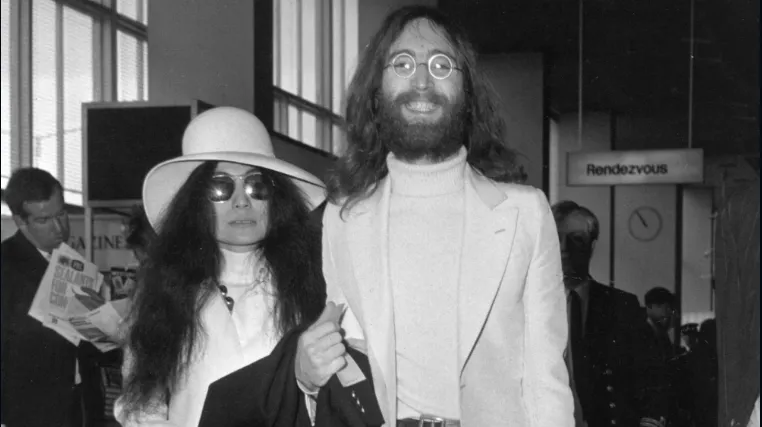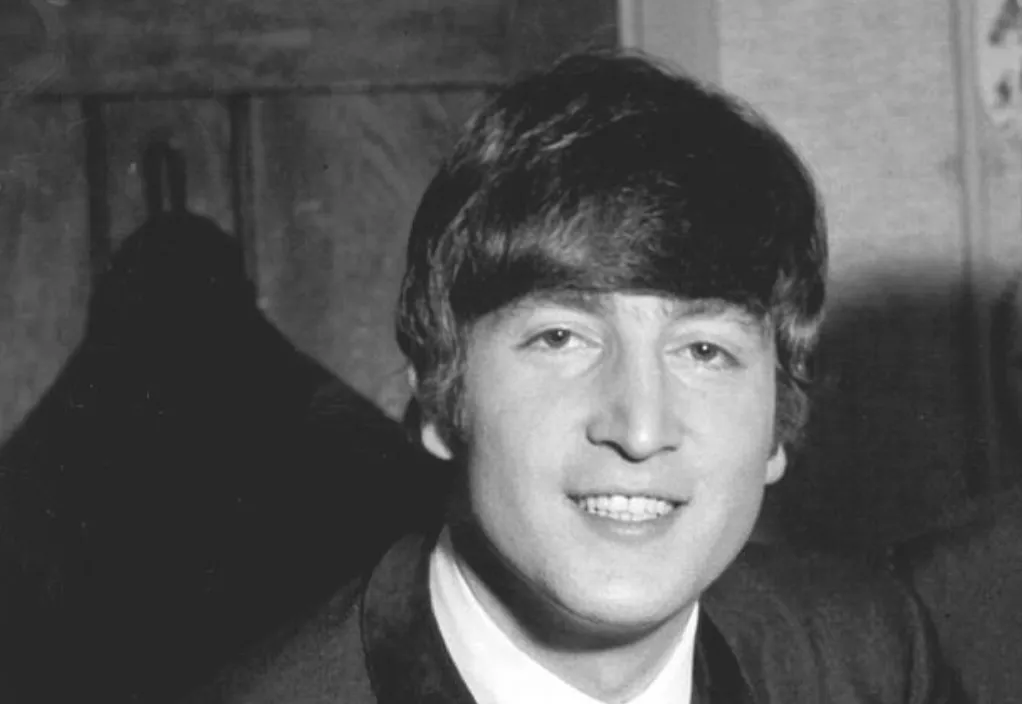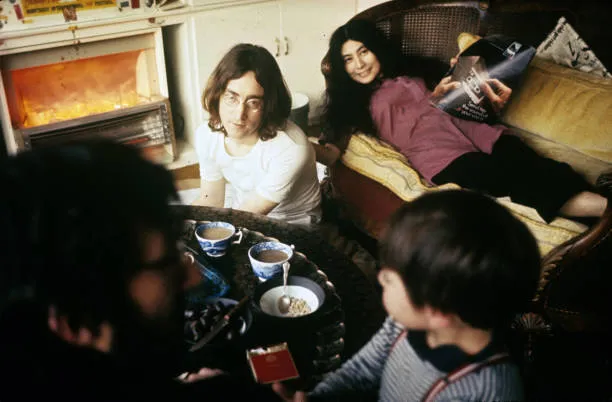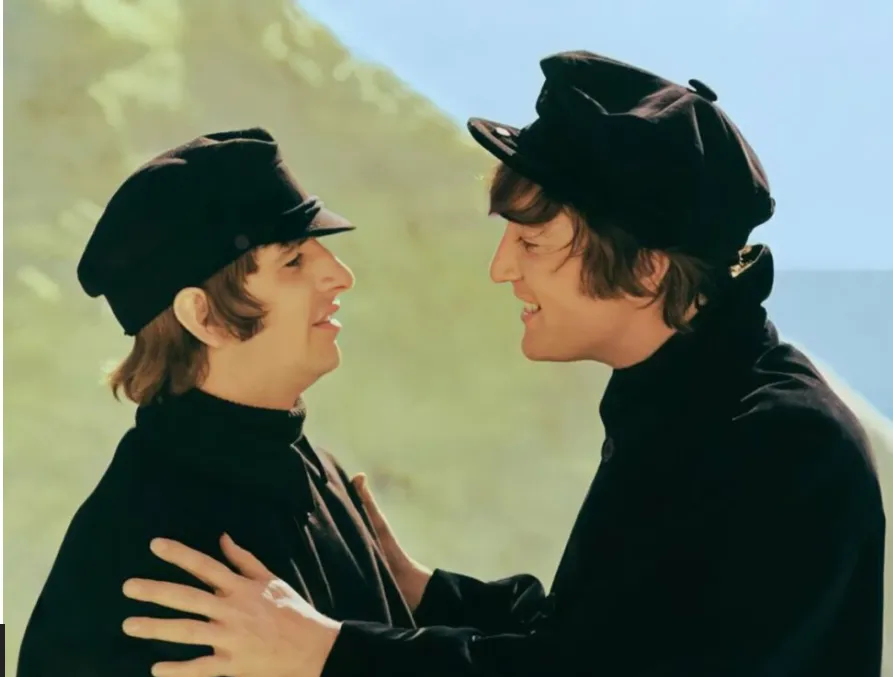John Lennon, one of the most iconic figures in music history, is renowned for his innovative artistry and his fervent activism.
Aside from his incredible music career, his dedication to social issues carved a unique legacy that continues to inspire generations.
One of the most compelling instances of his activism is reflected in the song “John Sinclair.”
Who Is John Sinclair?

John Sinclair was a poet, radical political activist, and cultural figurehead in the tumultuous 1960s. He co-founded the White Panther Party, a left-wing radical group that ardently supported the Black Panther Party and pushed for social justice, racial equality, and anti-capitalist ideals.
In the late 1960s, Sinclair managed the influential rock band MC5, becoming deeply embedded in the counter-culture movement.
However, his activism came at a personal cost. In 1969, Sinclair was sentenced to ten years in prison for giving two joints of marijuana to an undercover police officer.
The severity of his sentence caused a public uproar, symbolizing the extreme measures taken during the war on drugs.
John Lennon: Musician and Activist
By the early 1970s, John Lennon had evolved from a Beatle into a dynamic agent of change. Living in New York City with Yoko Ono, Lennon immersed himself in various social and political causes.
His activism extended beyond mere words; it was demonstrated through actions and, critically, his music.
The case of John Sinclair resonated deeply with Lennon. The unjust punishment for a minor offense epitomized the systemic issues Lennon opposed.
Determined to use his platform for justice, Lennon decided to harness the power of music to amplify Sinclair’s plight.
The Rally for John Sinclair

On December 10, 1971, a large rally was held in Ann Arbor, Michigan, to demand John Sinclair’s release.
Organized by various activists and cultural figures, the “Free John Sinclair” concert took place at Crisler Arena, drawing significant attention and featuring performances by artists including Stevie Wonder and Phil Ochs.
John Lennon and Yoko Ono's presence at the rally was pivotal. Lennon wrote the song “John Sinclair” specifically for this event, using his creativity and fame to further the cause.
His performance delivered a powerful message that echoed in the hearts of the crowd and beyond.
Lyrics That Resonate: Creation of “John Sinclair”

The song "John Lennon John Sinclair" is a prime example of Lennon’s ability to turn his convictions into compelling art. The lyrics are stark and direct:
"It ain't fair, John Sinclair,
In the stir for breathing air.
Won't you care for John Sinclair,
In the stir for breathing air?
Let him be, set him free,
Let him be like you and me."
Lennon’s words cut to the core of the issue, emphasizing the absurdity and injustice of Sinclair’s imprisonment.
The plain language and repetitive structure were designed to ensure the message was clear and potent, reaching a wide audience.
His performance at the concert was raw and passionate, reflecting his genuine concern and determination to see justice served.
The song not only galvanized the attendees but also spread further, igniting a public awakening to the travesty of Sinclair’s situation.
Immediate Aftermath and Impact
The impact of the rally and Lennon’s participation was almost immediate. Just three days after the concert, the Michigan Supreme Court ordered Sinclair’s release, recognizing the exaggerated nature of his punishment.
While many factors contributed to this decision, John Lennon’s involvement cannot be underestimated.
His song and performance were crucial in drawing widespread attention to the injustice Sinclair faced, exemplifying music's power as a tool for social change.
Enduring Legacy of "John Lennon John Sinclair"

Decades later, the song "John Sinclair" stands as a testament to the profound influence of art in activism. Here are some critical aspects of its enduring legacy:
Symbol of Activism: "John Sinclair" remains a potent symbol of how artists can leverage their platforms to effect change.
Lennon’s ability to seamlessly integrate his musical talent with his drive for justice showcases the unique power of creative expression in advocating for societal issues.
Timeless Relevance: The themes of justice and resistance in "John Sinclair" continue to resonate today. The song’s message is pertinent to ongoing discussions about drug policy reform, prison reform, and broader issues of civil rights and social justice.
Reflection of Lennon’s Values: The song encapsulates Lennon’s courage and commitment to using his fame for positive change. It stands as a pillar of his legacy, reminding us that artists can play a critical role in challenging injustices and advocating for a fairer world.
Educational Value: "John Sinclair" serves as an educational tool, offering insights into the power dynamics and social issues of the 1970s in the United States. It continues to be a valuable resource for learning about the intersection of culture, politics, and activism.
Exploring Art’s Impact
“John Lennon John Sinclair” is more than a song; it’s a powerful narrative of art’s ability to challenge the status quo and provoke meaningful change.
This episode in Lennon’s life exemplifies how musicians and artists are uniquely positioned to spotlight injustices and mobilize public sentiment.
Lennon’s boldness in addressing Sinclair’s case underscores his belief in the transformative power of music.
Through his art, he was able to articulate a powerful argument against the injustice Sinclair experienced, achieving a tangible and positive outcome.
Legacy of Change
“John Lennon John Sinclair” encapsulates a remarkable chapter in the annals of music and activism.
Lennon’s dedication to advocating for justice, expressed through this moving song, underscores the potential of music to inspire and drive social change.
His involvement in John Sinclair’s case is a testament to his deep-seated belief in fairness and equity.



